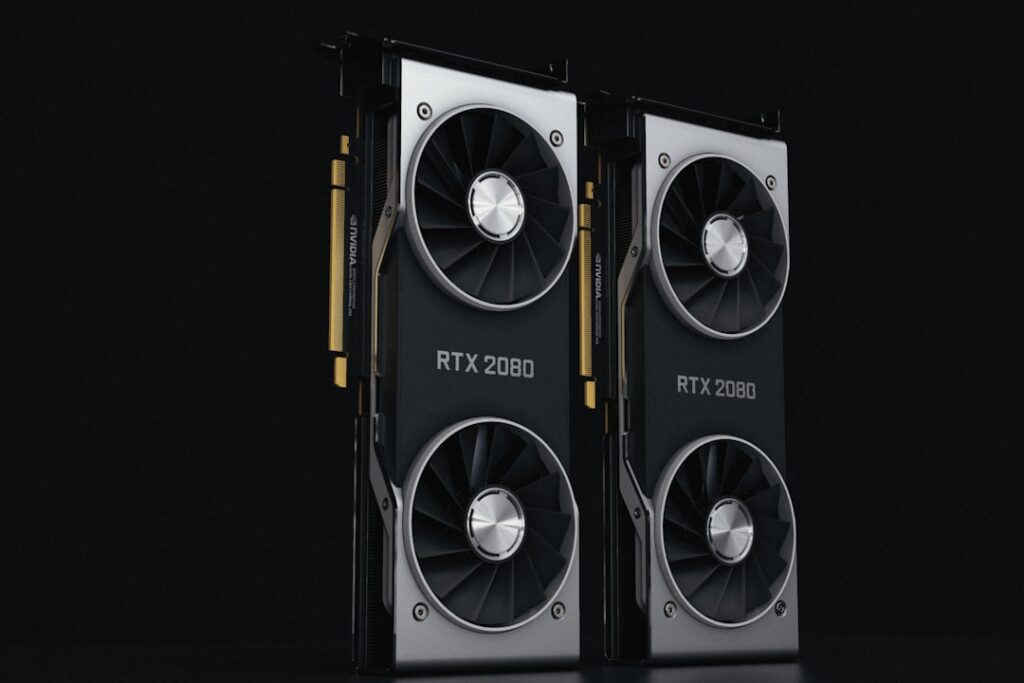Artificial Intelligence (AI) and cryptocurrency are two of the most transformative technologies of our time. AI refers to the simulation of human intelligence in machines that are programmed to think and learn like humans. Cryptocurrency, on the other hand, is a digital or virtual form of currency that uses cryptography for secure financial transactions. The intersection of AI and cryptocurrency has the potential to revolutionize the way we mine, trade, secure, predict prices, detect fraud, and adopt cryptocurrencies.
Understanding the relationship between AI and cryptocurrency is crucial for anyone involved in the crypto space. As AI continues to advance and become more sophisticated, it is increasingly being integrated into various aspects of cryptocurrency. By harnessing the power of AI, we can enhance efficiency, security, and accuracy in the world of cryptocurrencies.
How AI is Changing the Face of Bitcoin Mining
Bitcoin mining is the process by which new bitcoins are created and transactions are verified and added to the blockchain. Traditionally, bitcoin mining has been a resource-intensive process that requires powerful hardware and consumes a significant amount of energy. However, with the advent of AI-powered mining, this landscape is changing.
AI-powered mining involves using machine learning algorithms to optimize mining operations. These algorithms can analyze vast amounts of data and make predictions about which mining strategies will yield the highest returns. This can lead to more efficient use of resources and increased profitability for miners.
One advantage of AI-powered mining is that it can adapt to changing market conditions in real-time. Traditional mining operations often struggle to adjust their strategies quickly enough to remain profitable in a volatile market. AI-powered mining algorithms can continuously analyze market trends and adjust mining strategies accordingly.
However, there are also disadvantages to AI-powered mining. One concern is that it could lead to centralization of mining power in the hands of a few large players who have access to advanced AI technology. This could potentially undermine the decentralized nature of cryptocurrencies like Bitcoin.
The Role of AI in Enhancing Bitcoin Security
Bitcoin security is of paramount importance in the world of cryptocurrencies. Currently, bitcoin security measures rely on cryptographic algorithms and protocols to protect transactions and prevent unauthorized access to wallets. However, AI has the potential to enhance these security measures even further.
AI-powered security systems can analyze vast amounts of data and detect patterns that may indicate fraudulent activity or security breaches. These systems can also learn from past incidents and adapt their algorithms to better protect against future threats. This can help prevent hacks, scams, and other forms of cybercrime that are prevalent in the cryptocurrency space.
One advantage of AI-powered security is its ability to detect sophisticated attacks that may go unnoticed by traditional security measures. AI algorithms can analyze network traffic, user behavior, and other data points to identify anomalies that may indicate a security breach. This can help protect users’ funds and maintain the integrity of the blockchain.
However, there are also concerns about the use of AI in bitcoin security. One concern is that AI-powered security systems may become targets for hackers themselves. If hackers are able to compromise an AI system, they could potentially use it to launch more sophisticated attacks or gain unauthorized access to users’ funds.
AI-Powered Trading: The Future of Cryptocurrency Exchange
Cryptocurrency exchanges are platforms where users can buy, sell, and trade cryptocurrencies. Traditionally, cryptocurrency trading has been a manual process that requires users to make decisions based on their own analysis of market trends and price movements. However, with the introduction of AI-powered trading, this landscape is changing.
AI-powered trading involves using machine learning algorithms to analyze market data and make trading decisions on behalf of users. These algorithms can analyze vast amounts of data in real-time and make predictions about future price movements. This can help users make more informed trading decisions and potentially increase their profits.
One advantage of AI-powered trading is its ability to remove human emotions from the trading process. Human traders are often influenced by fear, greed, and other emotions that can cloud their judgment and lead to poor trading decisions. AI algorithms, on the other hand, are not subject to these emotions and can make decisions based solely on data and analysis.
However, there are also disadvantages to AI-powered trading. One concern is that AI algorithms may be susceptible to manipulation or exploitation by malicious actors. If hackers are able to compromise an AI trading system, they could potentially manipulate the market or execute fraudulent trades.
The Impact of AI on Bitcoin Price Prediction
Price prediction is a crucial aspect of cryptocurrency trading. Traditionally, price prediction has relied on technical analysis, fundamental analysis, and other traditional methods. However, AI has the potential to revolutionize price prediction by analyzing vast amounts of data and making more accurate predictions.
AI-powered price prediction involves using machine learning algorithms to analyze historical price data, market trends, news sentiment, and other relevant factors. These algorithms can identify patterns and correlations that may not be apparent to human traders. This can help users make more informed trading decisions and potentially increase their profits.
One advantage of AI-powered price prediction is its ability to adapt to changing market conditions in real-time. Traditional price prediction methods often struggle to adjust their models quickly enough to account for sudden market shifts. AI algorithms, on the other hand, can continuously analyze new data and adjust their predictions accordingly.
However, there are also concerns about the use of AI in price prediction. One concern is that AI algorithms may become too reliant on historical data and fail to account for unforeseen events or market manipulations. If an AI algorithm is trained on a dataset that does not accurately reflect current market conditions, its predictions may be inaccurate or misleading.
AI-Driven Fraud Detection in Cryptocurrency Transactions

Fraud detection is a critical aspect of maintaining the integrity of cryptocurrency transactions. Currently, fraud detection methods rely on manual analysis of transaction data and the use of heuristics to identify suspicious activity. However, AI has the potential to enhance fraud detection by analyzing vast amounts of data and identifying patterns that may indicate fraudulent activity.
AI-powered fraud detection involves using machine learning algorithms to analyze transaction data, user behavior, network traffic, and other relevant factors. These algorithms can identify anomalies and patterns that may indicate fraudulent activity. This can help prevent scams, hacks, and other forms of fraud that are prevalent in the cryptocurrency space.
One advantage of AI-powered fraud detection is its ability to detect sophisticated forms of fraud that may go unnoticed by traditional methods. AI algorithms can analyze large volumes of data in real-time and identify subtle patterns or anomalies that may indicate fraudulent activity. This can help protect users’ funds and maintain the integrity of the blockchain.
However, there are also concerns about the use of AI in fraud detection. One concern is that AI algorithms may generate false positives or false negatives, leading to unnecessary restrictions on legitimate transactions or allowing fraudulent transactions to go undetected. It is crucial to continuously train and refine AI algorithms to minimize these errors and ensure accurate fraud detection.
AI and the Blockchain: A Perfect Match for Cryptocurrency
The blockchain is a decentralized ledger that records all transactions made with a particular cryptocurrency. It is one of the key innovations behind cryptocurrencies like Bitcoin. The integration of AI and the blockchain has the potential to revolutionize the way we use and interact with cryptocurrencies.
AI-powered blockchain involves using machine learning algorithms to analyze blockchain data and make predictions or decisions based on this analysis. For example, AI algorithms can analyze transaction data to identify patterns or trends that may be useful for predicting future price movements or detecting fraudulent activity.
One advantage of AI-powered blockchain is its ability to enhance transparency and trust in the cryptocurrency space. By analyzing blockchain data, AI algorithms can provide insights into the behavior of users, the flow of funds, and other relevant factors. This can help identify potential scams, money laundering, or other forms of illicit activity.
However, there are also concerns about the use of AI in the blockchain. One concern is that AI algorithms may compromise the privacy and anonymity of users. If AI algorithms are able to analyze blockchain data and link transactions to specific individuals or entities, it could potentially undermine the privacy features that are inherent in cryptocurrencies.
The Potential of AI in Improving Cryptocurrency Adoption
Cryptocurrency adoption refers to the rate at which people are using cryptocurrencies for everyday transactions and financial activities. Currently, cryptocurrency adoption rates are relatively low compared to traditional forms of payment. However, AI has the potential to improve adoption rates by developing strategies that make cryptocurrencies more accessible and user-friendly.
AI-powered adoption strategies involve using machine learning algorithms to analyze user behavior, market trends, and other relevant factors. These algorithms can identify barriers to adoption and develop strategies to overcome them. For example, AI algorithms can analyze user feedback and develop user interfaces that are more intuitive and user-friendly.
One advantage of AI-powered adoption strategies is their ability to personalize the user experience and cater to individual preferences. Traditional adoption strategies often take a one-size-fits-all approach that may not resonate with all users. AI algorithms, on the other hand, can analyze user data and develop personalized recommendations or incentives that encourage adoption.
However, there are also concerns about the use of AI in adoption strategies. One concern is that AI algorithms may manipulate or exploit users’ behavior for commercial gain. If AI algorithms are able to analyze user data and develop personalized recommendations, they could potentially influence users’ decisions in ways that may not be in their best interest.
The Ethical Implications of AI in Cryptocurrency
The integration of AI and cryptocurrency raises a number of ethical concerns that need to be addressed. One concern is the potential for AI algorithms to be biased or discriminatory. If AI algorithms are trained on biased or discriminatory data, they may perpetuate or amplify existing biases in the cryptocurrency space.
Another concern is the potential for AI algorithms to be manipulated or exploited by malicious actors. If hackers are able to compromise an AI system, they could potentially use it to launch more sophisticated attacks, manipulate the market, or gain unauthorized access to users’ funds.
It is crucial to address these ethical implications and ensure that AI is used in a responsible and ethical manner in the cryptocurrency space. This includes ensuring that AI algorithms are trained on diverse and unbiased datasets, implementing robust security measures to protect against hacking and exploitation, and providing transparency and accountability in the use of AI.
The Future of Cryptocurrency: A World Powered by AI
The integration of AI and cryptocurrency has the potential to revolutionize the way we mine, trade, secure, predict prices, detect fraud, adopt cryptocurrencies, and more. As AI continues to advance and become more sophisticated, we can expect to see even greater advancements in the world of cryptocurrencies.
In the future, we may see AI-powered mining operations that are more efficient and profitable than traditional mining methods. We may also see AI-powered trading platforms that can make more accurate predictions and execute trades with minimal human intervention.
Furthermore, AI-powered security systems may become more effective at detecting and preventing fraud in cryptocurrency transactions. AI-powered price prediction algorithms may become more accurate and reliable, helping users make more informed trading decisions. And AI-powered adoption strategies may make cryptocurrencies more accessible and user-friendly for a wider range of users.
In conclusion, the intersection of AI and cryptocurrency has the potential to revolutionize the way we mine, trade, secure, predict prices, detect fraud, adopt cryptocurrencies, and more. It is crucial for anyone involved in the crypto space to understand the relationship between these two transformative technologies. By harnessing the power of AI, we can enhance efficiency, security, and accuracy in the world of cryptocurrencies. However, it is also important to address the ethical implications of AI in cryptocurrency and ensure that it is used in a responsible and ethical manner. Continued exploration and research into the intersection of AI and cryptocurrency will be crucial for unlocking the full potential of these technologies.
If you’re interested in the intersection of artificial intelligence and Bitcoin, you might also want to check out this fascinating article on the impact of AI on streaming music and royalties. It delves into how AI is revolutionizing the music industry by enhancing the way artists are compensated for their work. To learn more about this exciting topic, click here.



